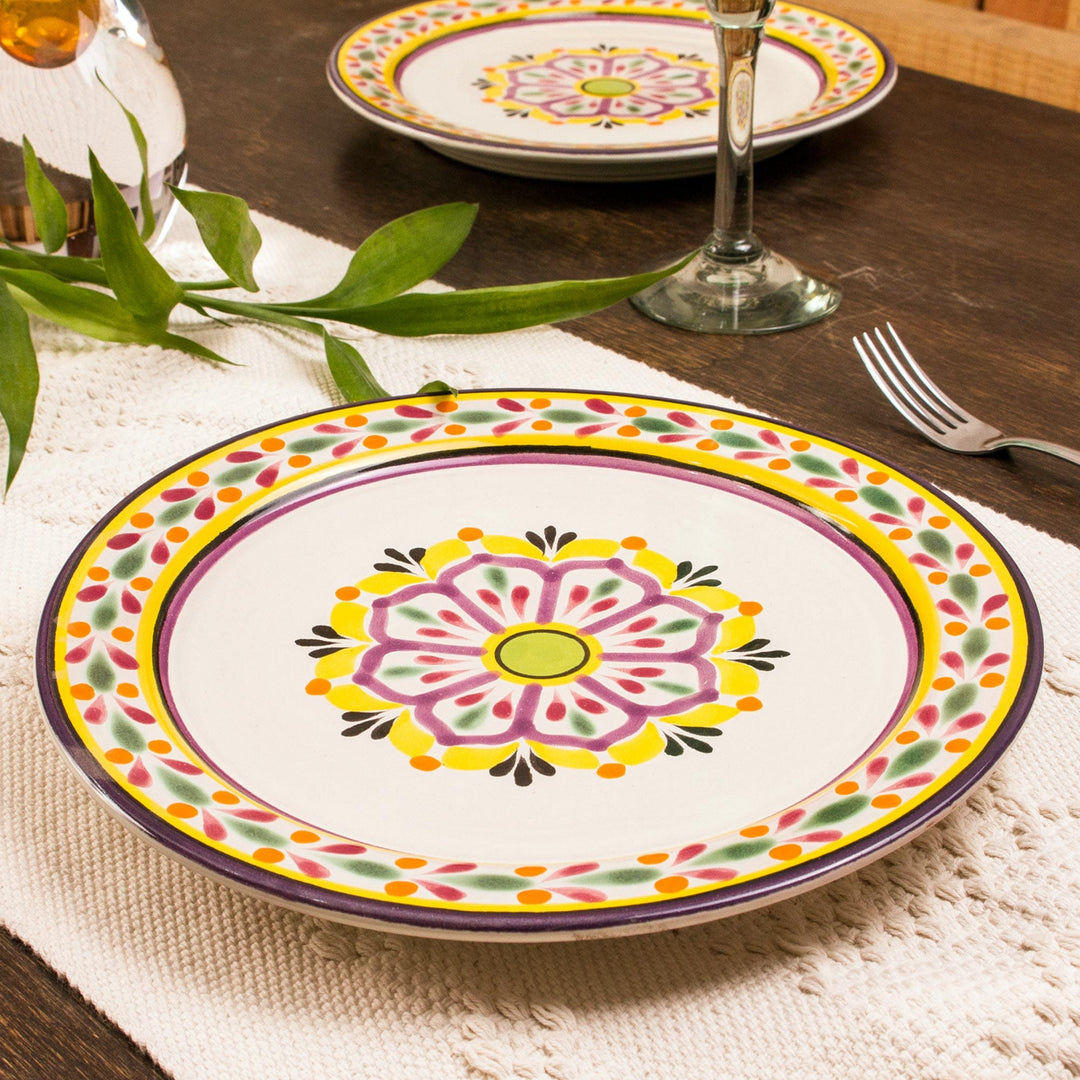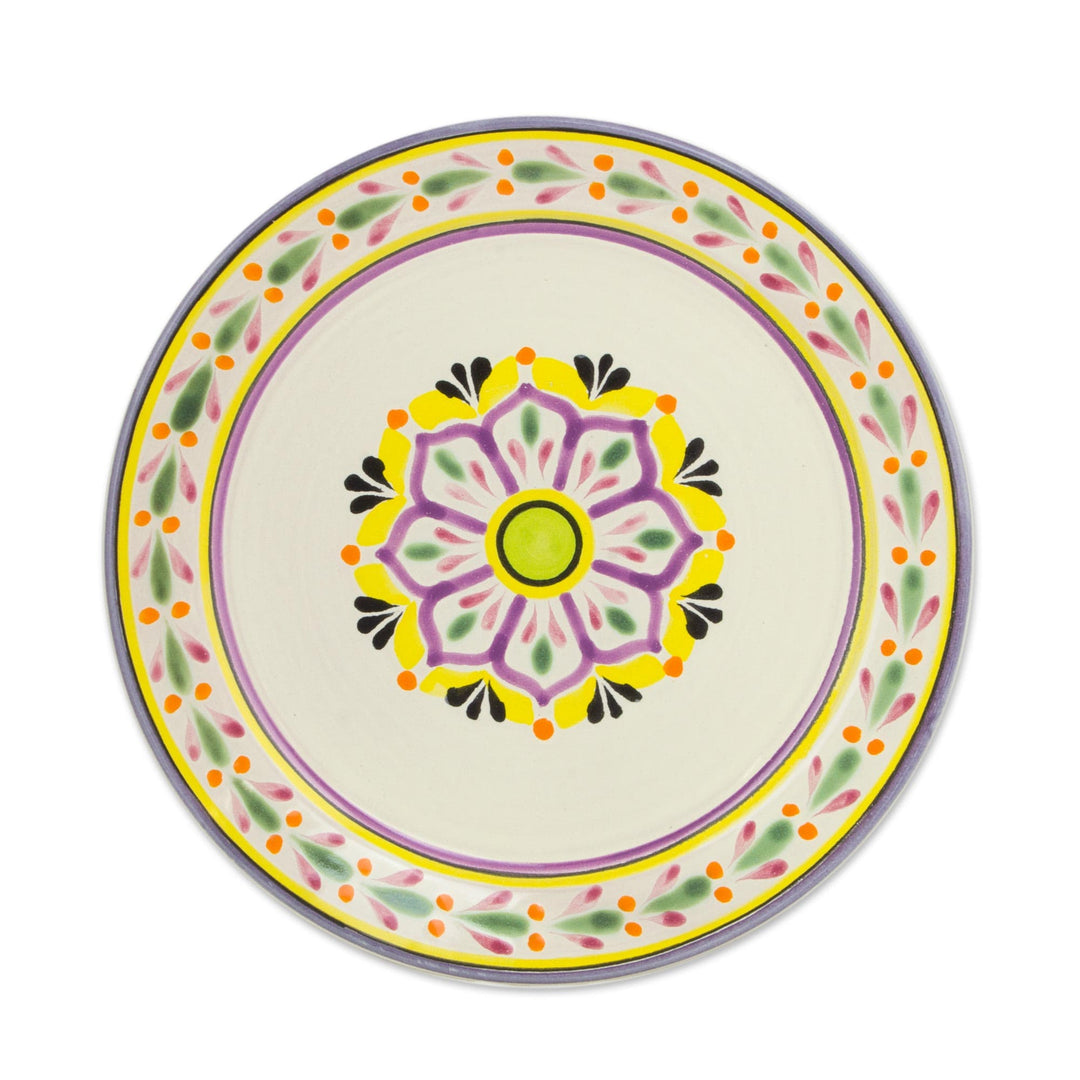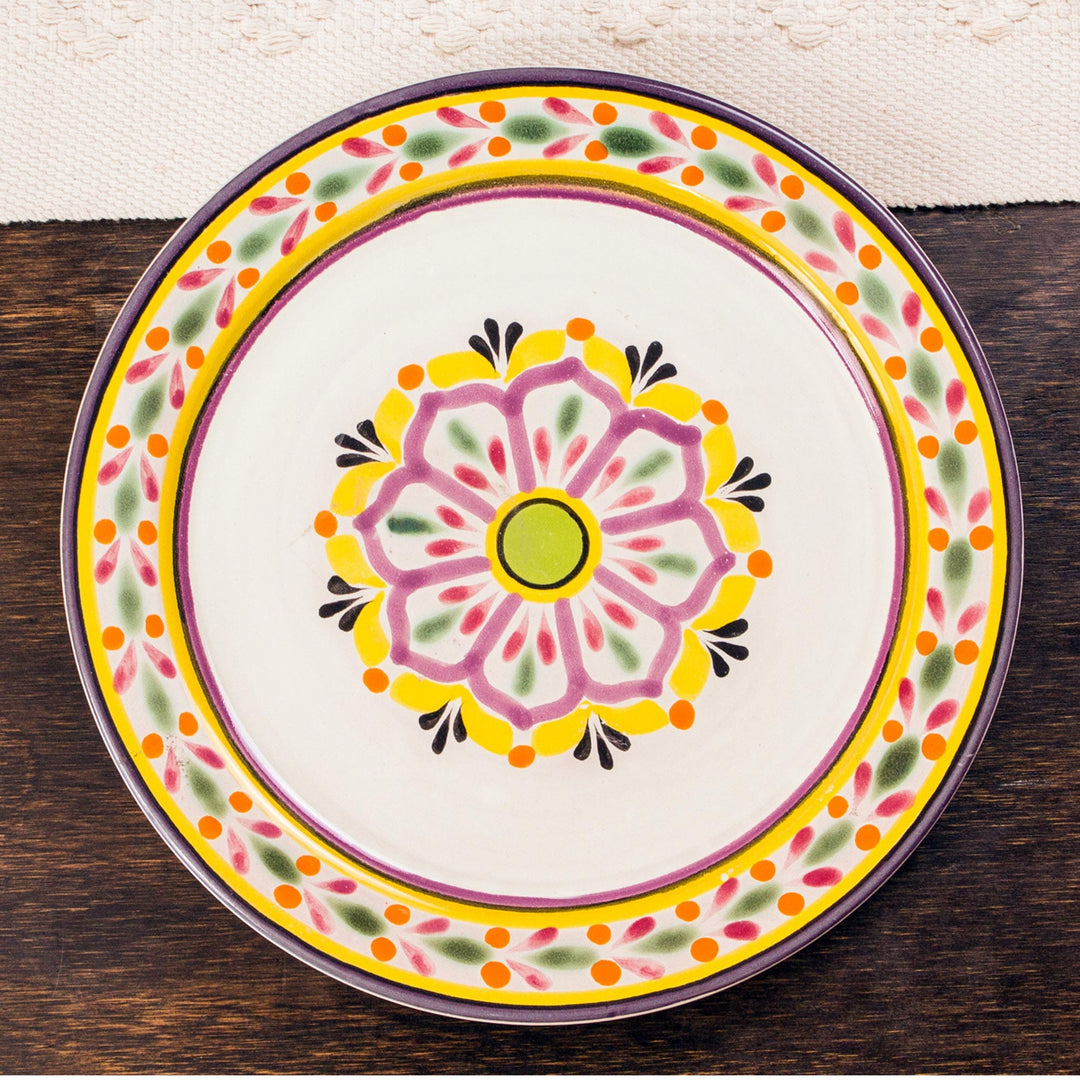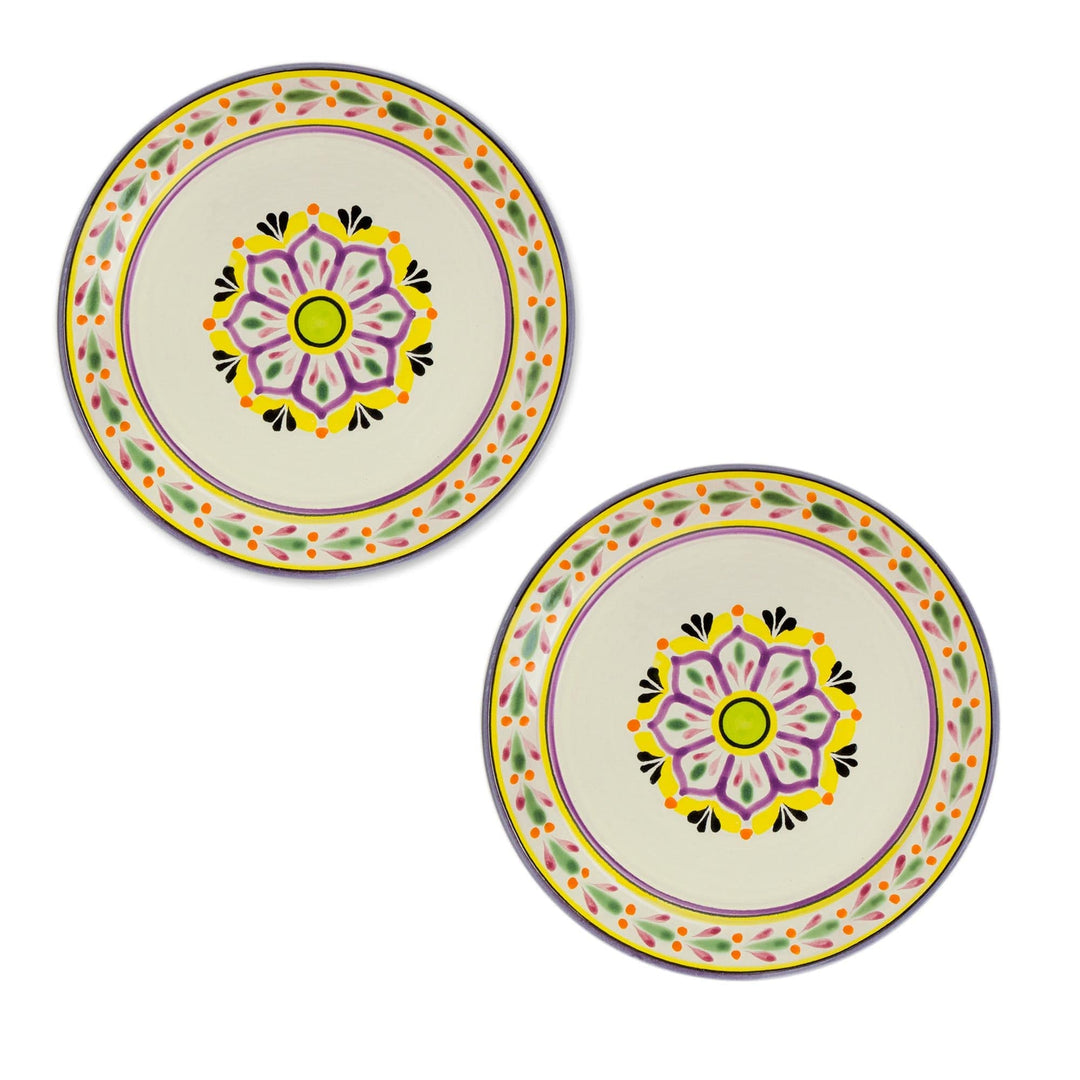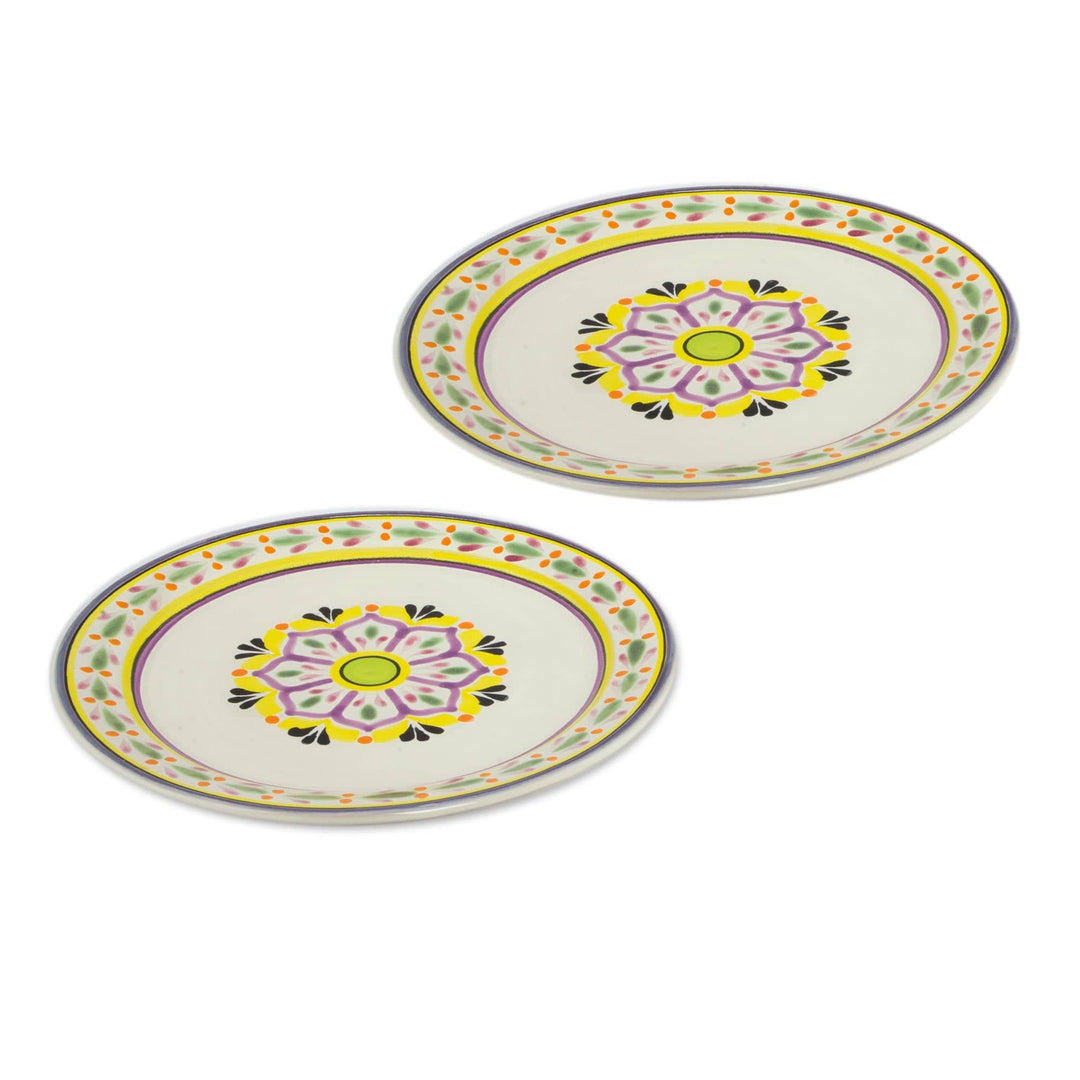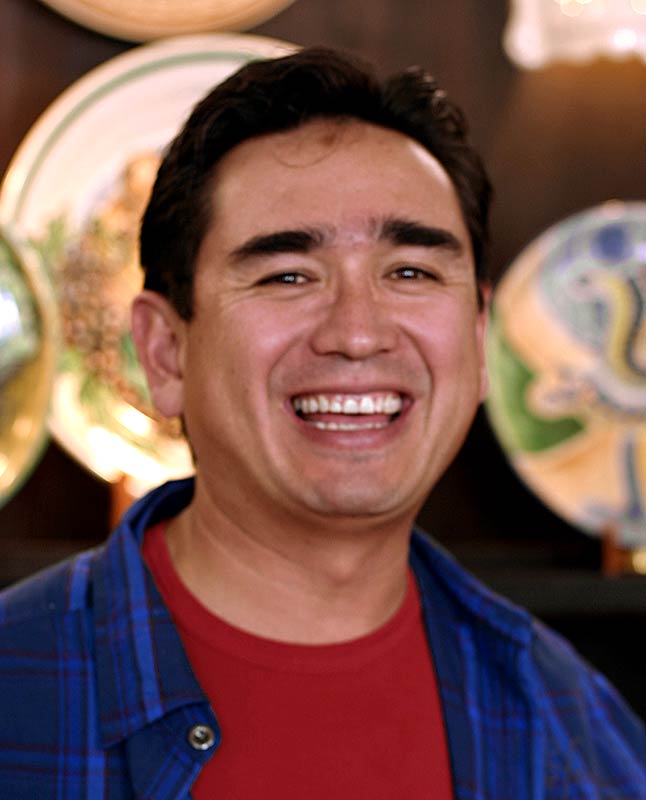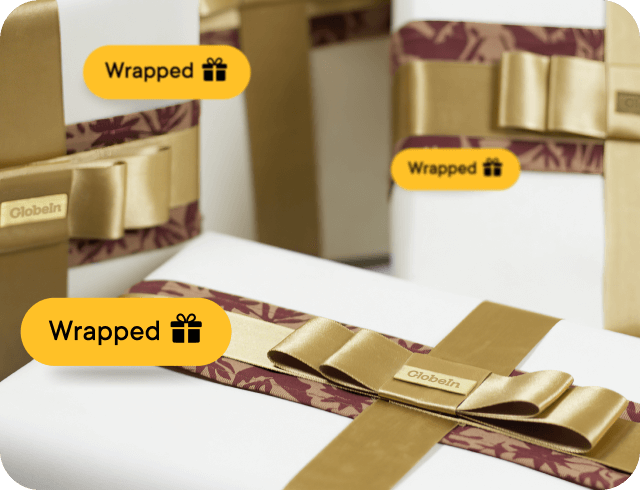
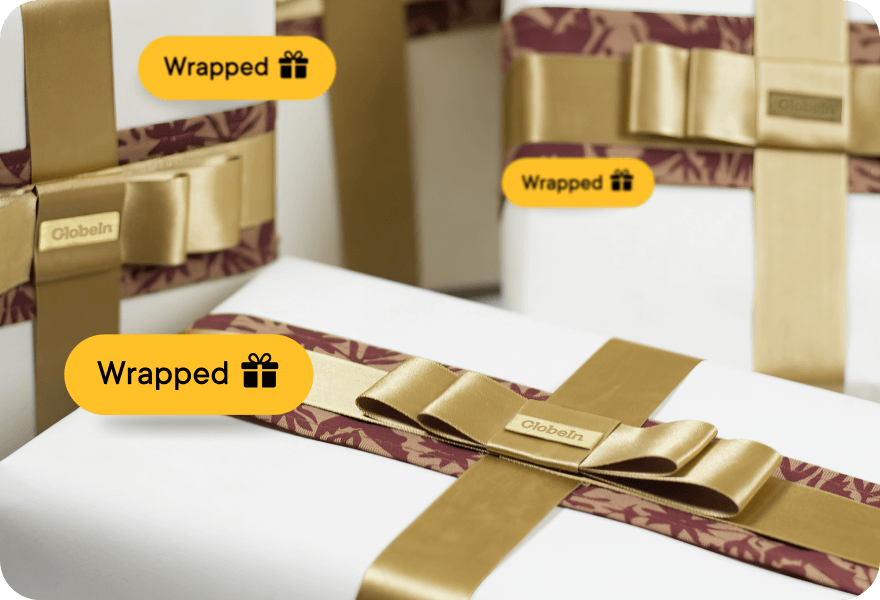
✓ Item added to cart
View Cart
Purple and Yellow Majolica Ceramic Dinner Plates (Pair) - Mexican Lavender
Sourced
Guarantee
Sunny yellow surrounds lavender petals in a pair of dinner plates by Gorky González. Working in the style of Mexico's colonial Majolica ceramics, he depicts a flower and foliage in green and purple on white. The artisan signs his work 'AT,' for alfarería tradicional (traditional ceramics).
- Ceramic
- 1.50 lbs
- Each: 1 inches H x 10.5 inches Diam.
THE STORY BEHIND THE PRODUCT
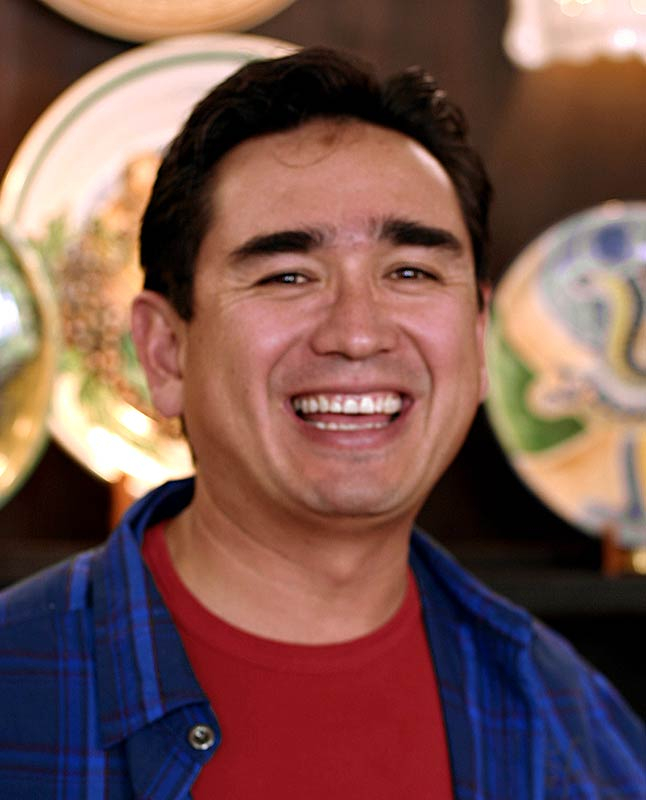
Artisan Organization: Gorky Gonzalez
Country: Mexico
Latest Update
"I learned at the hands of my father, who was also named Gorky. It's curious how parents ask you to carry on the family legacy, down to their own names. But this is a legacy that greatly impassions me.
"I learned how to create distinct colorations in ceramic in 1994, certain that I could make designs that were more original and distinguish us as a family. From the beginning, this has been our family mission and our trademark.
"Over the years, we have worked hand in hand with you to sell our work internationally in a way that is fixed and secure. This has given us the opportunity to share this family art tradition with people around the world.
"We've been able to give work to more people and create a beautiful atmosphere of trust and family in our workshop. It wasn't always like this. When you work with artists and artisans, inspiration governs each of your activities. When it comes to quality assurance, developing a process that could be repeated on a daily basis was challenging. For us, quality is supremely important.
"We have been able to increase our sales, which has allowed us to create more models for the ceramic designs that we use on a daily basis. Color is the principal focus. We create works that are beautiful and filled with color.
"We feel very happy and blessed to have the opportunity to show our work to everyone. With all our hearts, we want to continue being a part of this project that has inspired us so much and made us believe in ourselves and in the legacy that we want to share. We have only one direction — forward."
Original Artisan Story
Among his many, many awards, Gorky Gonzalez received the Premio Nacional de Ciencias y Artes in the area of Popular Arts and Traditions, from the hands of Mexico's president in 1992. "I was born in Morelia on September 27, 1939. My father was the sculptor Rodolfo González, with whom I worked and studied sculpture, metal casting and the lost wax process.
"In 1962, at the age of 23, I worked in the School of Arts and also the Instituto Allende in San Miguel de Allende. There, I set up a metal casting workshop for sculpture and it was used by both students and teachers. Later on, I founded a small ceramics workshop where I reproduced Jean Byron's designs in terracotta.
"However, my main interest was always the rescue of traditional Majolica pottery. I studied ceramics in Guanajuato, and this certainly let me see the need to rescue this lost craft, so representative of the region. It was through this interest that I met Hisato Murayama, a very well-educated young Japanese man who was here studying Spanish, philosophy and Mexican history. He had a deep knowledge of ceramic techniques and lent me a number of books on Japanese art. He encouraged me to continue my studies in his country, and I received a two-year scholarship to study in Japan. While there, I not only learned new ceramic techniques, but I also met Toshiko, the woman who became my wife.
"I first studied in Tokyo with the master Tsuji Seimei who he taught me the shigaraki technique. Then I moved to Bizen where I studied with Kei Fijiwara, who is considered a living national treasure. With him, I learned the technique known as bizen yaki. My last teachers were Kato Kobe and Kioske Fujiwara, who taught me the ten-Mocu, karatzu and Shino techniques. All of these are very ancient techniques, which require special effort and attention in the elaboration of ceramics.
"From that time on, I dedicated myself to the rescue and preservation of the Majolica technique in Mexico, maintaining the original designs used during the colonial period. This is why my workshop has become the most important one dedicated to traditional Majolica in Mexico."
Gorky González has exhibited his work throughout Mexico as well as in the U.S., including New York (1965, 1986, 2002), the University of North Dakota (1985), San Antonio (1991), Atlanta (1995), New Orleans (2000), San Francisco (2003), and in Montreal, Canada (1968). His work has appeared in European venues such as Madrid (1979), Paris (1990, 1999), Savona (1990), Frankfurt (1991), Cologne (1996), and in Cairo, Egypt (1991). His Latin American expositions include San Jose (Costa Rica, 1989), Brasilia (1992), Montevideo (1993) and Lima (1993). He has also returned to Japan, exhibiting his work in Tokyo (1967, 1997) and Okayama (1968)."
